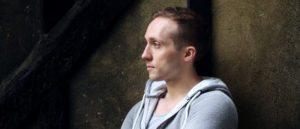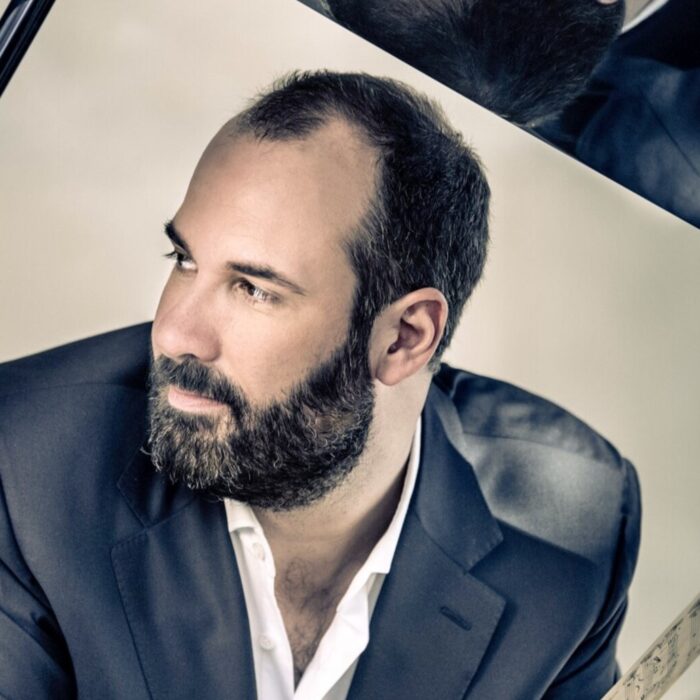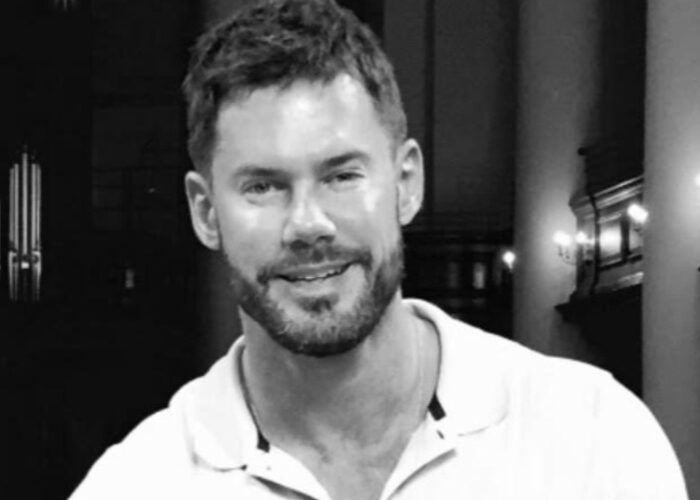
Opera in the Time of COVID: Iain Bell, Composer of ‘Jack the Ripper,” “A Harlot’s Progress,’ ‘Stonewall’
By David Salazar(Credit: Frances Marshall)
“Opera in the Times of COVID” is an interview series in collaboration with photographer Frances Marshall of Marshall Light Studio. We talk to notable figures from around the opera world to get their perspective on how they feel these challenging times may change opera’s present and future.
In terms of composers rising the ranks of the modern opera world, few are renowned as Iain Bell. In addition to several song cycles, his operatic output to date includes such works as “A Harlot’s Progress,” “A Christmas Carol,” “In Parenthesis,” “Jack the Ripper: The Women of Whitechapel,” and most recently, “Stonewall.”
In this interview, Bell previewed some of the work he’s been doing during the lockdown, his view on streaming and the opportunity it presents for the opera world, and what he is most excited about doing once the world reopens.
OperaWire: What have you done during this time to keep yourself positive and productive?
Iain Bell: I’ve been working on a song cycle commission for the past month, and whilst doing my best to maintain a routine, I’ve made a conscious effort to go a little easier on myself; to be a little kinder to myself with regards to my own personal expectations of how much music I write in a day, how long I spend writing per-day etc., as I have the tendency to beast myself a little too hard sometimes.
I find exercise a great mood elevator, and have become more acquainted than I ever imagined possible with home-workouts on YouTube. Goodness knows how many squats I’ve done in the past month – and who even knew that there were SO MANY types of squat!
Also, Dark Chocolate. Lots of it.
OW: What do you feel will be the greatest impacts of COVID-19 on the opera world moving forward? What are some new developments that you feel are here to stay?
IB: Streaming is definitely here to stay which I am delighted about. The more people who see what we do, the better. I am hoping more platforms spring-up, offering differing ways of presenting opera. Although live performance can never be replicated, I think we may see an acceleration in the development of multimedia technology to that end.
OW: Let’s talk more about streaming. How has this impacted your time in quarantine?
IB: I have loved catching up on a great many streamed opera and concert performances. The houses and orchestras are being so generous in opening their vaults, so to have this much choice has been wonderful. They have recognized that art is a great comforter in times of crisis. I have particularly enjoyed watching/listening to differing approaches to the same piece.
OW: What is an outcome of streaming’s preponderance during lockdown that you didn’t expect?
IB: That are are this many high quality videos of recent performances. I had no idea there was this much out there; am really enthused that this number of live performances have been captured in the last decade or so, enabling the generations to come to see what we’ve been up to.
OW: What do you enjoy most about this new development?
IB: I only joined Instagram in Feb/March (only maybe five years late to the party!?) so aside from streaming, it’s been wonderful to be able to see a less formal side to artists who are offering live Q&A sessions. This is vital to our continued shared aim of letting audiences know how we (as opera performers/creators) do what we do, as I feel the mystique that once surrounded the art form does it no favors. I have been asked to take part in a couple of these live streams in the coming weeks and I look forward to being on the other side. Maybe ask me this again then.
OW: How can opera companies and artists around the world learn from it moving forward and should it become a bigger part of the opera season experience moving forward?
IB: It is crucial that this enormous appetite the general public has isn’t dismissed once opera houses and concert halls re-open. It must be explored, and the loyalty of the supporters and fans who have stuck-by rewarded Though ticket revenue remains a huge source of income, knowing there are this many people out there hungry for our art needs to be engaged with on even deeper level.
It is now clear beyond any shadow of a doubt that the traditional concert buildings are no longer the only place to engage with classical music, and it is unbelievably exciting to think where this may lead. Be it in a development of the existing streaming technology, or a proliferation of more multimedia based operas/commissions, both of which are very welcome.
Opera has long been a pioneering, adaptive art form, so when the will (or indeed the financial imperative) is there, creativity will rise to the challenge. Landmark productions and indeed the general aesthetic of post-war European opera were largely borne out of the scarcity of resources, Britten’s chamber operas were scored for and cast with smaller forces for that same reason and Philip Glass’ pocket-operas (as he calls them) are a masterclass in harnessing minimal resources with maximum impact. The same can be said by those employed in the broadcast media who are doing such a splendid job at streaming at the moment. They will want to distinguish their work from others’, which will inspire further creative ingenuity.
OW: What are you most excited about doing once the quarantine officially comes to an end and we are allowed to resume a “normal” life?
IB: I live on a very busy street in London and love hearing the raucous buzz of humanity going on about me, all of which is now silenced. I can’t wait to hear once again the voices of passers-by, the honking of car horns, and the merriment of those who may have had a cocktail too many!
OW: What activities do you miss the most?
IB: Being able to hug my friends. Being in a live audience. The gym. Long train journeys where I can listen to entire operas or podcasts. Browsing the ice cream freezer in a supermarket for minutes on end. Grabbing a coffee with a friend.
OW: Who have been the people you have relied on most to help you through these challenging times?
IB: My husband Mikey – without a shadow of a doubt. We live together enabling us to share our fears (however irrational they may feel at the time), which has been unbelievably reassuring. I also have a dear friend, Colette whom I’ve known since school. I feel there is something particularly grounding about being able to walk through this (via technology) with someone you’ve known since childhood. And making the effort to FaceTime with different friends on a regular basis has been a real source of joy.
OW: Most people in quarantine are actively engaging with the arts via either music, TV, film, reading, literature. Etc. What have you been watching or reading during this time?
TV has been a complete mix. I’ve recently enjoyed delving into things from my youth, like “Sister Sister” and “Sabrina the Teenage Witch.” Have also found vintage pastoral things like “Jam & Jerusalem” and “Mapp & Lucia” strangely reassuring in spite of their innate quirkiness. That said, I think my favorite show of the year has been “Hunters”…oh, and of course I’m glued to the new season of “Rupaul’s Drag Race.”
Musically, I am feeling myself drawn to music which has something of a chaotic beauty about it; Penderecki, Ligeti, Berg. Listening to them is giving voice to, or acting as a vent to some of the anxiety I’m feeling.
In terms of literature, it’s been more work-based. I’ve had an idea for an opera slowly germinating in my head for a while, so I’ve been reading around the subject as much as I can. More practically speaking, I am midway through a song-cycle commission setting some c.19th American poems. It’s been a great distraction to be able to immerse myself elsewhere now and then.
OW: Speaking more globally about the pandemic, what can the world learn about this experience? What do hope to see from our leaders (political or even industry) in order to build a better future that enables us to better manage any similar type of situation?
IB: I had previously taken it as a given that we all regularly crave human contact, even if it’s just passing by a stranger at a crossing, but this has driven that fact home even harder. I feel technology has been crucial to our collective emotional survival in this instance, helping us maintain that contact as far as possible, so I hope this gives birth to a new generation of technologies which bring us even closer in such times of isolation.
The view that offices are the sole environment in which certain business operate has been shattered, and I think this is a good thing. Working from home (even one day a week) can be beneficial to mental health and the environment, so I hope the work-place adapts and remains flexible.
On a more serious note, this has demonstrated that we can no longer ignore warnings issued by governments/charities/campaigners, be they environmental, medical or financial. We owe it to ourselves and the future to act upon them at the first instance. It’s that old adage: prevention is better than cure.
Categories
Interviews

